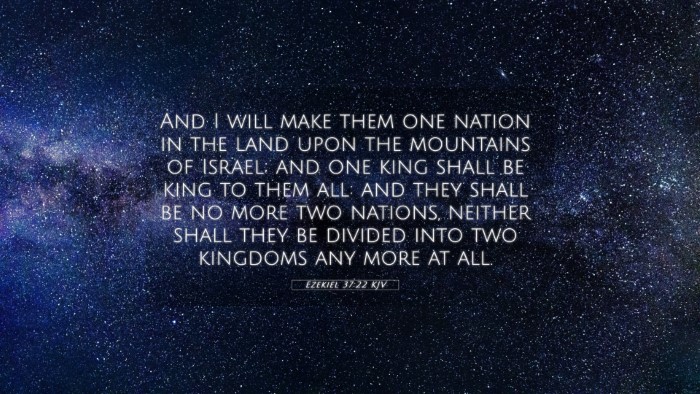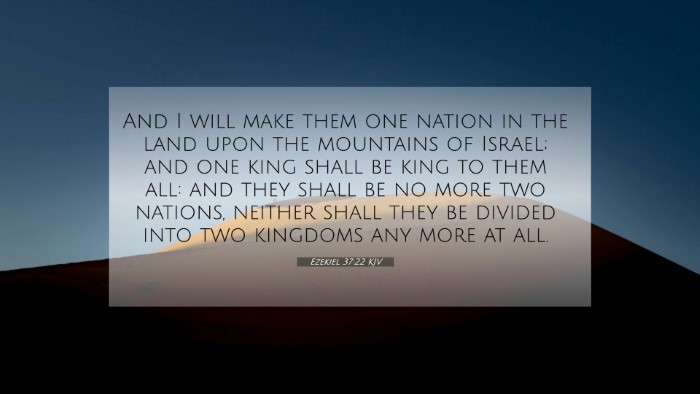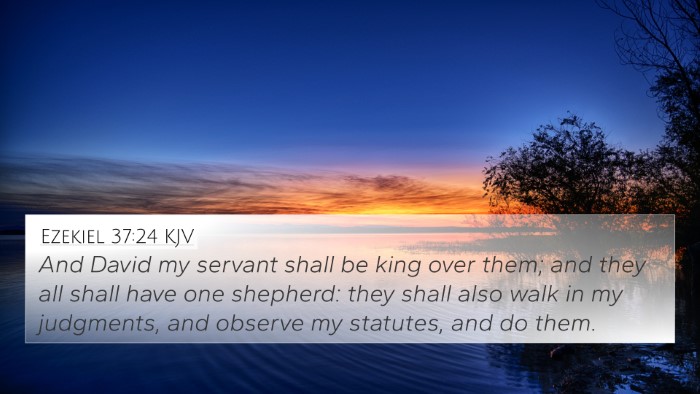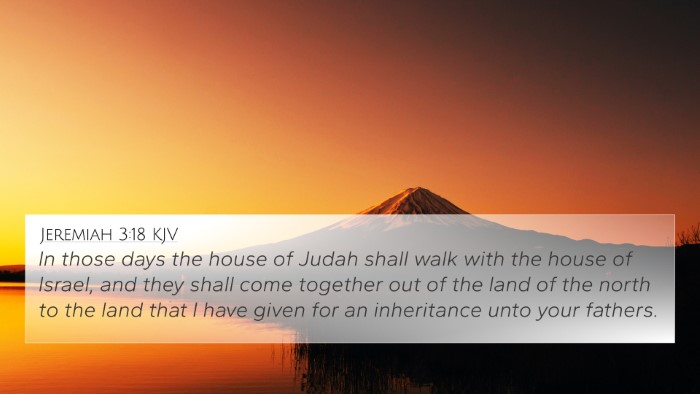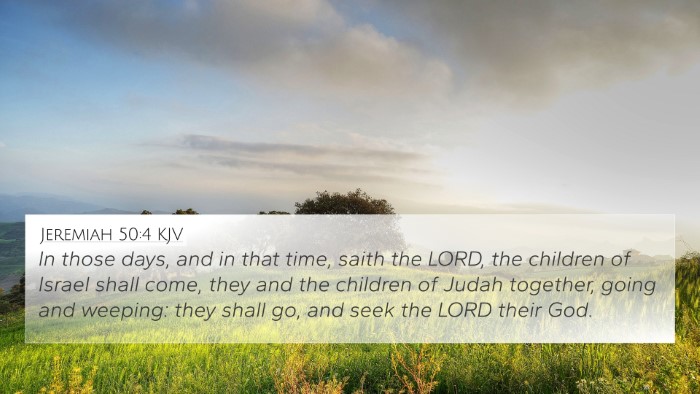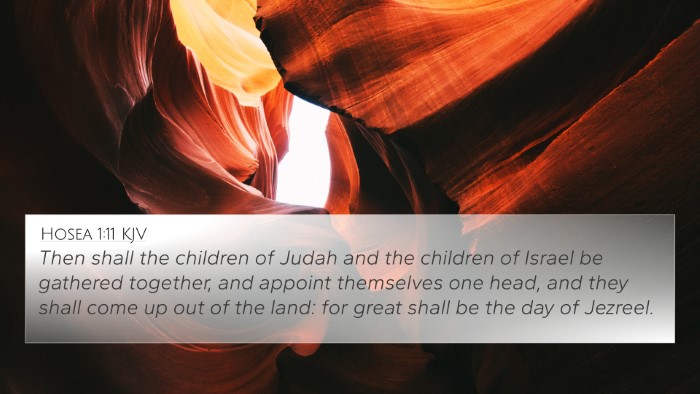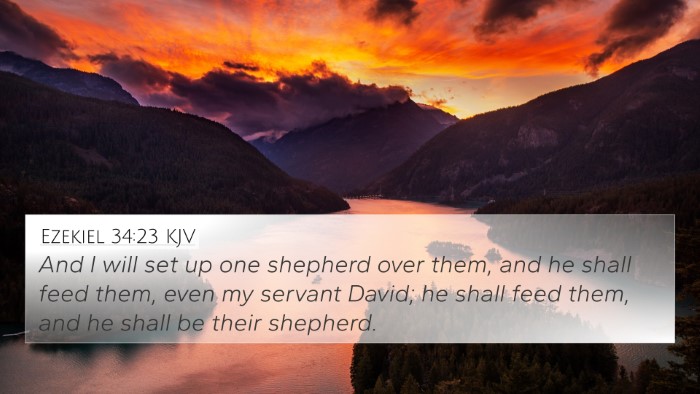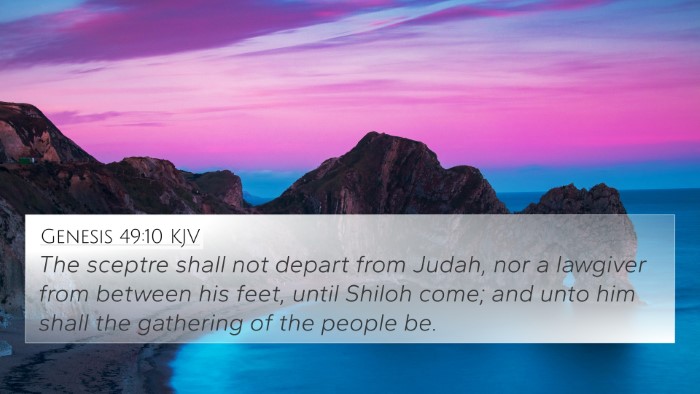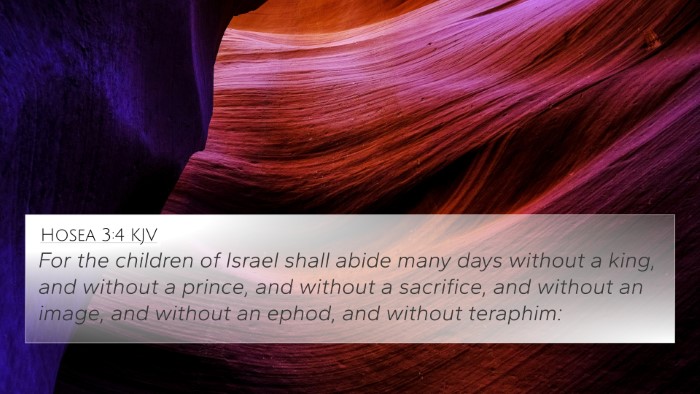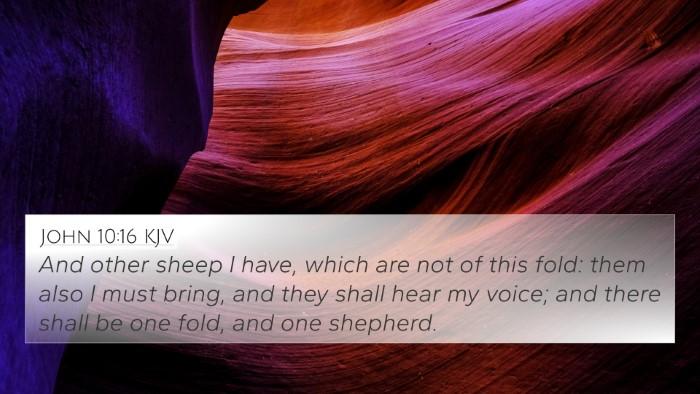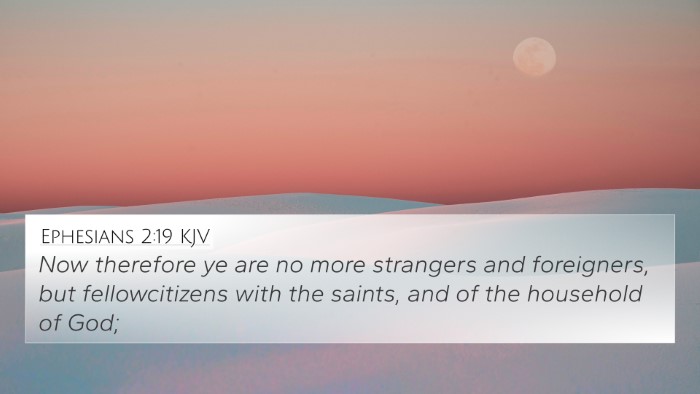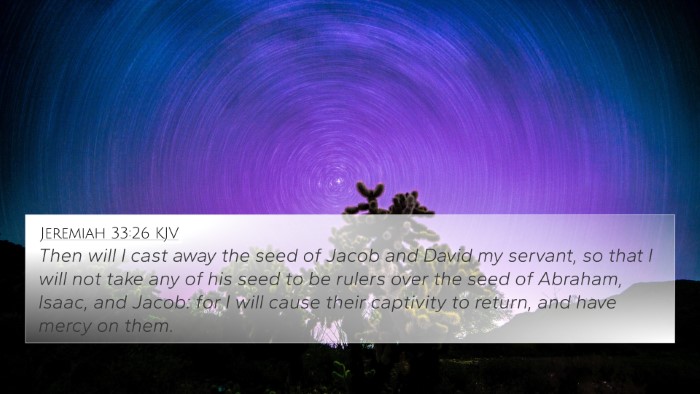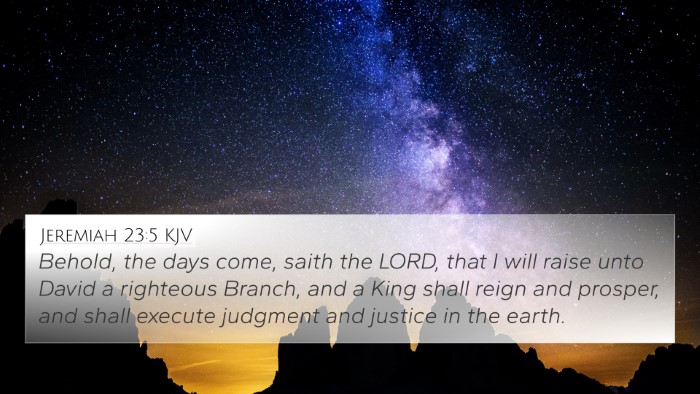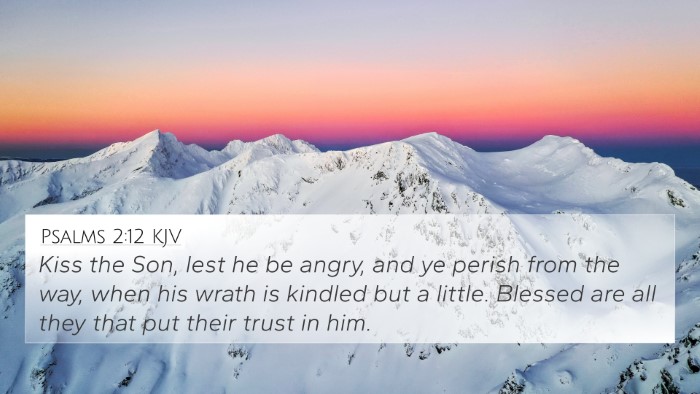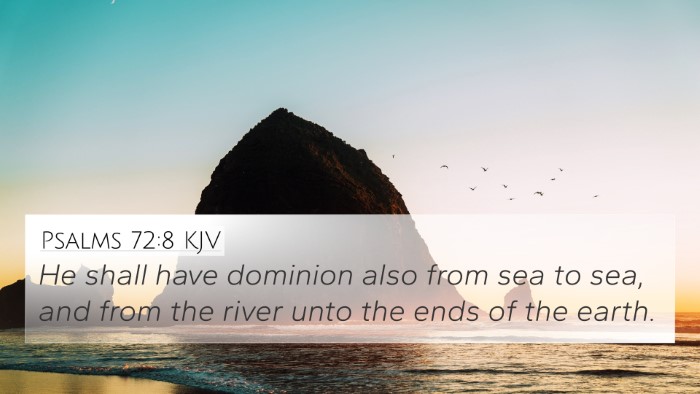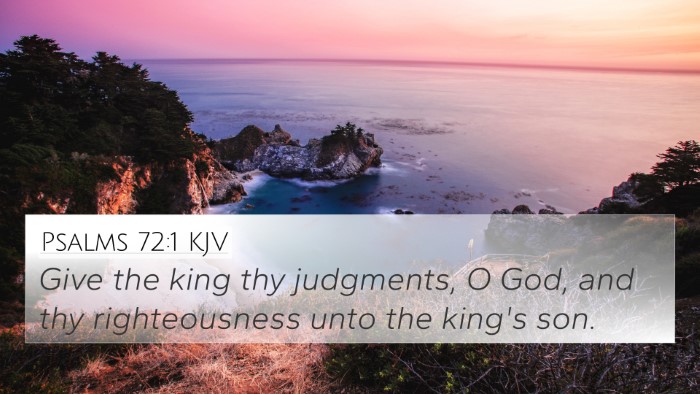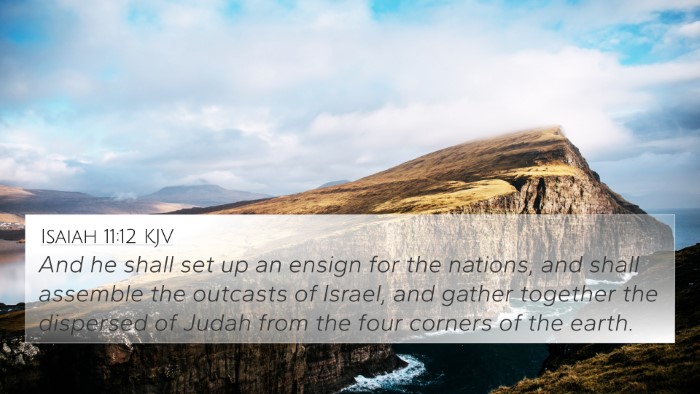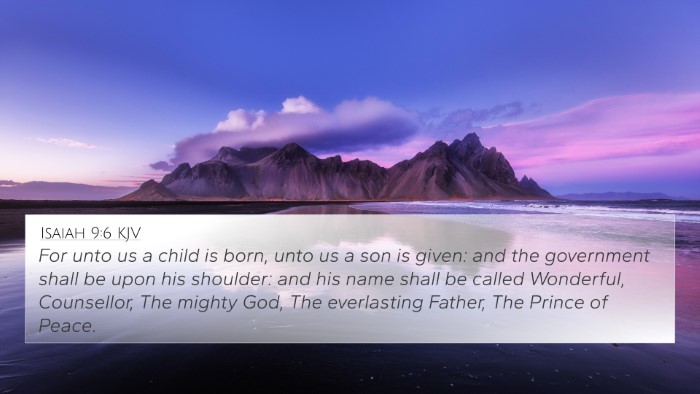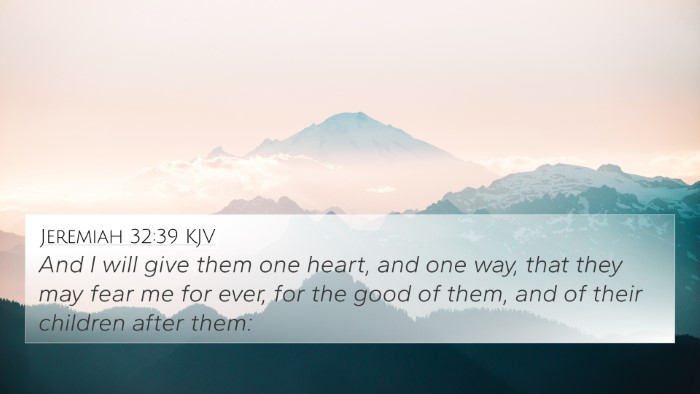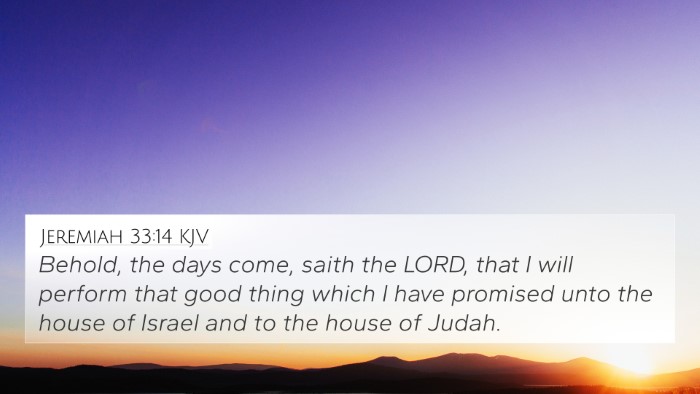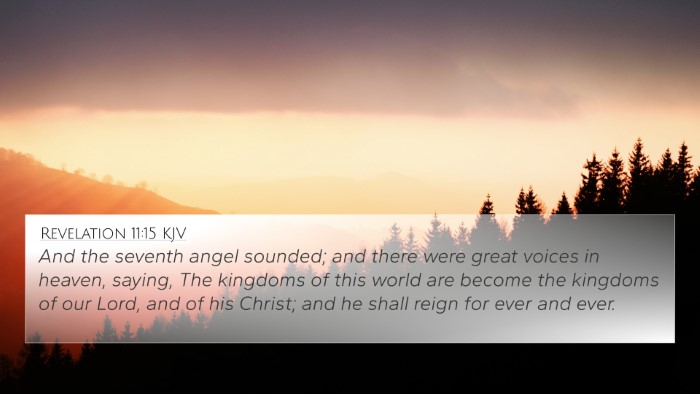Ezekiel 37:22 - Meaning and Interpretation
Ezekiel 37:22 states: "And I will make them one nation in the land upon the mountains of Israel; and one king shall be king to them all: and they shall be no more two nations, neither shall they be divided into two kingdoms any more at all." This verse addresses the unification of Israel, a theme prevalent throughout the Scriptures, and signifies God's covenant promise to His people.
Contextual Background
The Book of Ezekiel is a prophetic text that emerges during a tumultuous period in Israel's history, specifically during the Babylonian exile. Ezekiel, as a prophet, communicates messages from God, emphasizing both judgment and restoration. Ezekiel 37 specifically deals with themes of revival and hope, culminating in the vision of the valley of dry bones and the promise of national reunification.
Key Themes
- Unity: The primary focus of this verse is the unification of a divided nation, reflecting God’s plan for His people.
- Restoration: It emphasizes God's intent to bring restoration and healing to a people torn apart by sin, division, and exile.
- Divine Sovereignty: The promise of a single king symbolizes God's ultimate control and the establishment of true leadership over His people.
Commentary Insights
Matthew Henry’s Commentary
Matthew Henry emphasizes the significance of oneness in the nation of Israel, underscoring how God will no longer tolerate division among His people. He draws attention to the fact that this promised unity reflects the unity of Christ’s church, where Jew and Gentile are brought together under one head, Jesus. A key aspect of this prophecy relates to the fulfillment through David’s lineage, ultimately pointing to Christ as the eternal King of both Jews and Gentiles.
Albert Barnes’ Notes
Albert Barnes notes that this prophecy assures the exiles that God will restore them as one nation, indicating the permanence of God's covenant. He interprets "one king" to mean a singular leader who will guide the people in righteousness. Barnes also connects this verse with the broader theme of peace and security that comes from divine governance, highlighting the spiritual implications of the kingdom of God in the lives of believers today.
Adam Clarke’s Commentary
Adam Clarke expands on the idea of unity, stating that this prophecy heralds a future where God's people will not only exist as one nation but also worship Him collectively. He posits that the mention of "mountains of Israel" refers to places of divine significance and worship, indicating that their reunification will be towards the center of God’s presence. Furthermore, Clarke ties the prophetic vision to the New Testament church, emphasizing the continuity of God's plan throughout history.
Bible Verse Cross-References
This verse resonates with multiple other scriptures throughout the Bible that underscore themes of unity, restoration, and divine kingship. Here are some relevant cross-references:
- Isaiah 11:13: Refers to the end of enmity between the divided tribes of Israel.
- Jeremiah 3:18: Describes the coming together of the tribes of Israel and Judah under one leader.
- Hosea 1:11: Prophecies about the unifying of Israel and Judah into one nation.
- Acts 15:14-17: Indicates the calling of the Gentiles and the unification under Christ.
- Ephesians 2:14-16: Highlights Christ as our peace, breaking down the walls that divide humanity.
- Revelation 7:9-10: Depicts a unified people from every nation worshiping God.
- John 10:16: Jesus mentions that He has other sheep who will hear His voice, and there will be one flock under one shepherd.
Thematic Bible Verse Connections
The interconnectedness of scripture enhances the understanding of Ezekiel 37:22. Here are some thematic connections that reflect the unity and kingship of God’s people:
- John 17:21: Jesus' prayer for unity among believers, "that they may all be one."
- Philippians 2:2: Encouragement for believers to have the same mind and love, resulting in unity.
- 1 Corinthians 12:12-13: The body of Christ as one entity, regardless of individual differences.
- Romans 12:4-5: Many members of one body in Christ, emphasizing interdependence among believers.
- Colossians 3:14: Love binds everything together in perfect harmony, akin to unity in the body of Christ.
Conclusion
Ezekiel 37:22 serves as a profound declaration of God’s promise to His people—one of unity, restoration, and divine governance. By cross-referencing this verse with others, a fuller picture of biblical unity emerges, revealing God’s ongoing plan through history. The themes of unity and kingship found in this verse resonate powerfully in both the Old and New Testaments, bridging connections that continue to comfort and encourage believers today.
Tools for Bible Cross-Referencing
For those interested in studying these connections further, several tools can enhance your understanding:
- Bible Concordance: A reference tool to find verses on specific topics or keywords.
- Bible Cross-Reference Guide: A systematic approach to linking scriptures related to central themes.
- Cross-Reference Bible Study: Methods for exploring deeper meanings through interconnected texts.
- Comprehensive Bible Cross-Reference Materials: Resources available for in-depth study.
How to Use Bible Cross-References
Understanding how to find cross-references can enrich your Bible study experience. Here are some methods:
- Utilize a Bible reference resource or app that highlights scripture connections.
- Engage in cross-referencing Bible study methods by comparing passages that discuss similar themes.
- Practice identifying connections between Old and New Testament readings, drawing parallels in message and intent.

